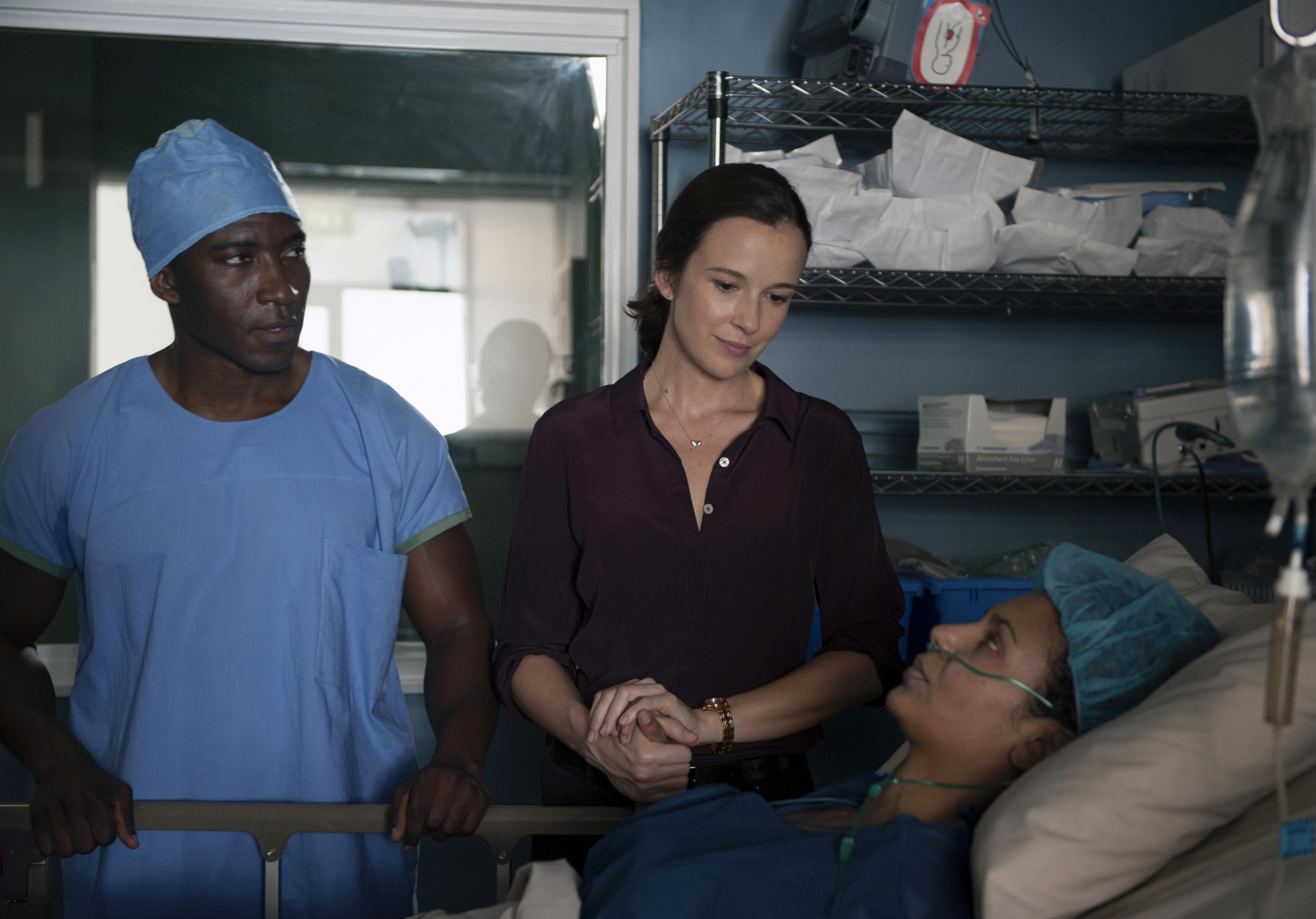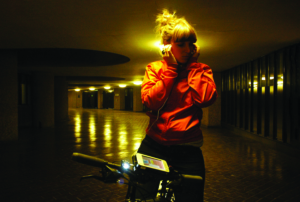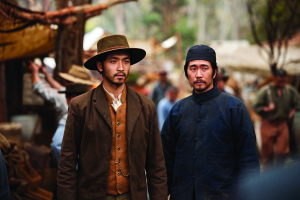In her essay ‘The Empathy Exams’, Leslie Jamison writes of her experience as a medical actor; she is given a script and tasked with performing the role of a ‘standardised patient’ for a doctor-in-training. The aspiring doctors are rated on their performance using a checklist, with points awarded for recognising symptoms, picking up on particular behaviours and identifying potentially significant elements of family history. But what is ‘generally acknowledged as the most important’ trait or ability is item number 31: ‘Voiced empathy for my situation/problem.’
We are instructed about the importance of this first word, voiced. It’s not enough for someone to have a sympathetic manner or use a caring tone of voice. The students have to say the right words to get credit for compassion.[1]Leslie Jamison, ‘The Empathy Exams’, The Believer, February 2014, <https://www.believermag.com/issues/201402/?read=article_jamison>, accessed 19 October 2017, emphasis in original.
I spent a lot of 2017 in hospitals, in waiting rooms or lying on examination tables, as a result of my chronic illness. The scars of past poor hospital treatment sit with me as much as the marks from scalpels. When I first had surgery over ten years ago, the staff were so awful during my recovery that my very reasonable and kind mother went from pleading with to yelling at the nurses. Hospitals can be places of healing, but they can equally be places of pain and trauma and grief.
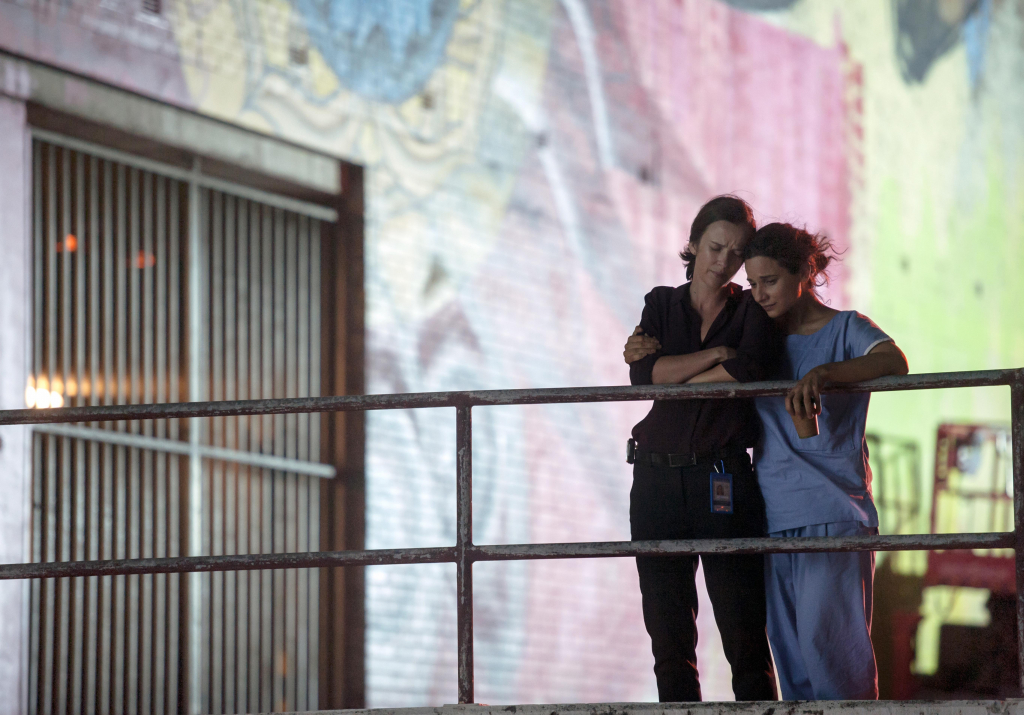
I learnt that year that, often, the most caring acts are small or unsaid. In the recovery bay after my most recent surgery, I asked to be helped from the bed so I could use the toilet. One nurse helped me to my feet, made sure I was steady and took my arm so I felt protected as I walked down the cold, hard corridor. By the time I had arrived back at my bay, another nurse had taken my bed away, wheeled in a comfortable recliner and brought me a fresh blanket. This held me up even more than the nurse who took my arm. This told me I had a team, I had support – and that comfort and care were important. When you are sick and vulnerable, nothing means more.
Pulse – an eight-episode ABC drama series – stars Claire van der Boom as Frankie Bell, a resident doctor at a Western Sydney hospital. Frankie has asked to be assigned to this hospital; she has her eyes firmly placed on the renal ward and the opportunity it will afford her to learn from resident nephrologist Chad Berger (Owen Teale). So far, so ordinary medical drama. But Pulse’s twist comes from the connection between these two characters, not only as teacher and student, but also as doctor and patient.
Drama of real life
Frankie was a high-level finance executive plagued with rapid kidney failure when Berger brought her back to life. After a kidney transplant restored her health, Frankie decided to go to medical school, vowing to give back. It has bred in her not only a dogged determination to excel technically, but also something so rarely found in medical practitioners: empathy born of real-life experience.
There is a consistent use of shallow focus throughout Pulse, with each scene’s central character highlighted against a blurred background; this often occurs when the character is worried, anxious or making a key decision. While watching the first half of the series, this annoyed me immensely. Are the showrunners trying to be clever? Why is this effect necessary? But, as Pulse continued into its second half, it all clicked together. The shallow depth of field is not there out of mislaid trickery, but rather to represent everything that goes unsaid between doctors and patients, husbands and wives, between friends, between lovers. This visual effect hints at the severe symptoms, or the smoking in hospital gowns, that patients hide from loved ones to stop their worrying; it also alludes to the worst-case scenarios kept shielded by doctors until worthy of concern, or the likely easily treatable causes not revealed until proven beyond doubt. In a hospital, as Pulse demonstrates, what doctors, patients and loved ones are not told can be more important than what they are.
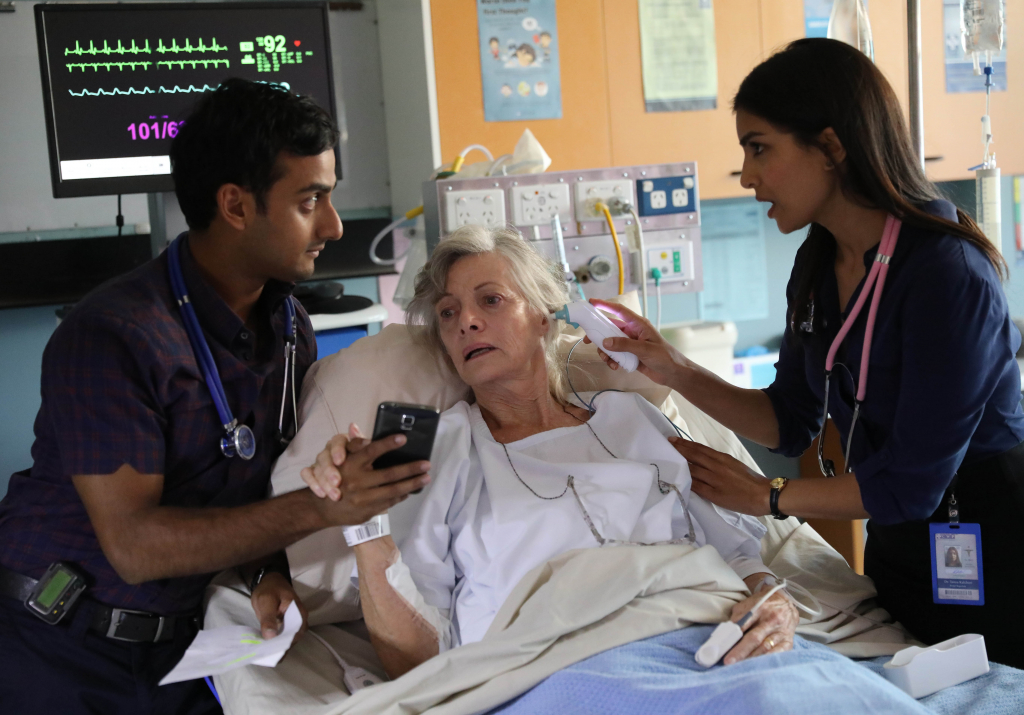
Pulse is also a show about all the moments that we, as patients and visitors, don’t see. The series shows us that, often, the greatest acts of empathy by our doctors and nurses – like the chair and fresh blanket I returned to that day in hospital – are all the things they shield us from. The dodgy equipment that needs to be replaced. The names below ours on the waiting list they’ve disregarded for our benefit. The calls to their childcare centres, so they can stay an extra hour at work for us.
The good doctors say things like, ‘I’m sorry you’re going through all this,’ or, ‘It’s okay to be emotional,’ or, ‘Don’t worry – we’re going to work this out.’ The good ones know to say and do the right things, and when, but even then they may not understand how exhausting being sick can be. They may not know what it’s like to have to ask for help. They may not know the financial stress; the emotional stress; the pressure on your relationships, on your job, on your family. What they see is the strain on your organs and your muscles; they see pain in numbers from 1 to 10; they see test results and physical exams. But they may not understand what it’s really like to be sick.
Pulse is also a show about all the moments that we, as patients and visitors, don’t see. The series shows us that, often, the greatest acts of empathy by our doctors and nurses are all the things they shield us from.
Pulse bridges this disjuncture through Frankie.In the first episode, we see her treating Shawn (Daniel Amalm), a renal patient who recognises her from her own time in hospital. The two would sit side by side through the long hours of dialysis, rarely speaking but playing cards or hangman. Asking why Shawn has missed so many sessions, thereby putting his health in danger, Frankie is reminded of the exhaustion of treatment: ‘You know what it’s like,’ he says. ‘Day in, day out. All the restrictions, no freedom. [You] just get to a point where you wonder—’ to which she chimes in, ‘if it’s still worth it’.
There is a level of understanding that only comes from lived experience, and we see this radiate from Frankie as she talks to patients – the extra time spent explaining a treatment, the additional care given to make sure patients understand what’s ahead, the touch of the arm, the comforting grip of the hand. In Episode 1, two grieving parents – Lucia (Zoe Carides) and Pedro (Franko Milostnik) – pull Frankie over in a corridor; she’s in a rush, but they are scared, confused and alone, told to make an immediate decision about their son’s wish to donate his organs. Frankie stops, drops her anxious shoulders and listens to their concerns. ‘The thought of his body being cut up and parts of him going into strangers …’ Lucia remarks, to which Frankie replies, ‘The strangers would be people like you and me. Or your son.’ Frankie recognises she is speaking beyond her purview, but is also aware of the need to offer guidance during such an emotionally fraught time.
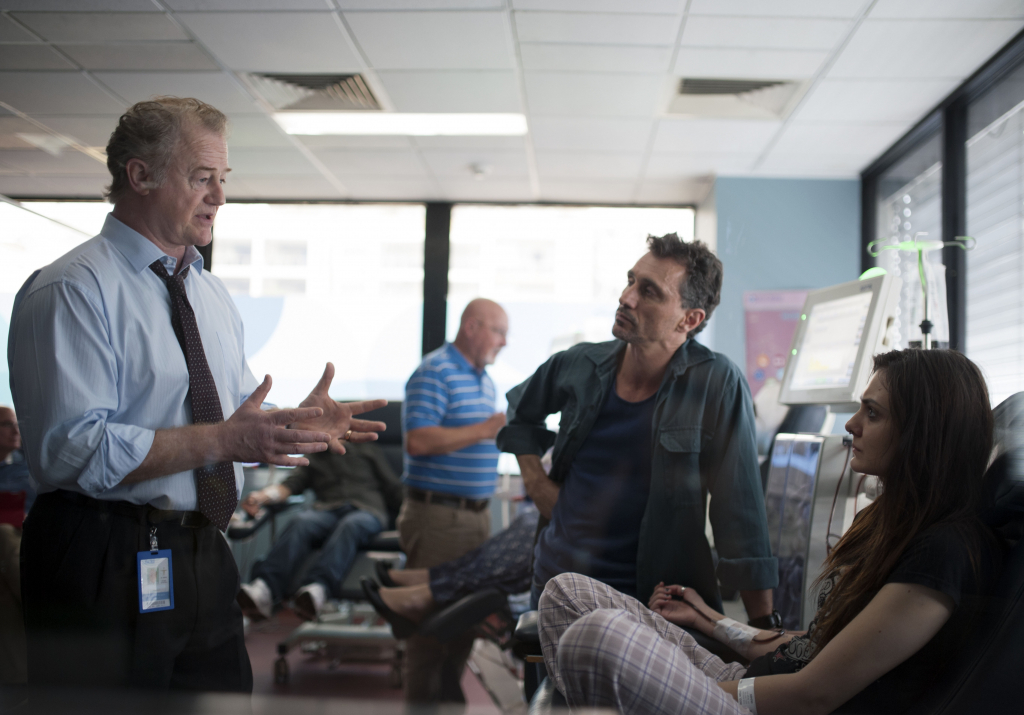
‘When you’re really sick, people shun you and […] they stop seeing you as one of the living,’ Frankie tells Berger, after she questions his need to keep his illness a secret from his staff. But she has her own health problems that she is trying to conceal, as revealed to viewers when her best friend and fellow resident Lou Tannis (Andrea Demetriades) prods her about them. Nevertheless, Frankie’s primary motivation is always patient care – and, if she is known to be unwell, it’s likely she won’t be promoted to positions that will enable her to make a difference to those who are now walking in her former shoes. For all the formulaic lines that doctors resort to – ‘That must be really hard’, ‘You must be tired’, ‘I know it’s not fair’ – she knows that nothing can compete with the words of someone who has been there themselves.
When supervising doctor Eli Nader (Liam McIntyre) tells Frankie she can’t afford to get too attached to her patients, she replies: ‘If you can’t relate to them on their level, how can you begin to know how to help them? We may as well be robots.’ But Eli stresses the pitfalls of over-empathising with patients: ‘One day, you’re going to have to tell someone that there’s nothing more you can do for them. If you’re too emotionally attached, you will not be able to.’ Eli’s warning is realised during a later case that they work on together, involving a Kurdish refugee without access to Medicare. The patient, admitted for kidney problems, requests a termination of a pregnancy caused by rape – but, as she is seven months pregnant, there is nothing Frankie is legally able to do for her. ‘Is there any other way that I can help you?’ Frankie asks Naza (Aanisa Vylet), visibly frustrated by her ethical limitations.
This is just one example of how Pulse paces out the dramas surrounding Frankie’s profession by incorporating broader issues relating to ethics and empathy. Nothing in a hospital is black-and-white; while doctors must work to moral and legal standards, their responsibilities to their patients often remain blurred.
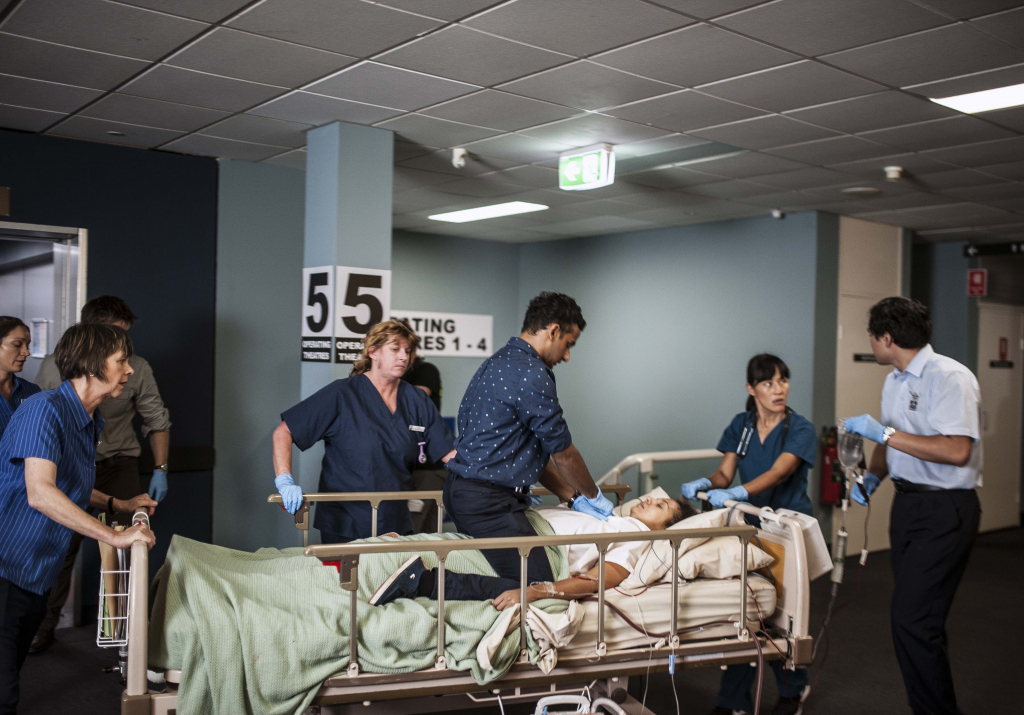
An established practice
The medical drama is a well-worn television genre. Like many of my peers, I grew up watching the big American hospital shows of the 1990s and 2000s. ER and, to a lesser extent, Chicago Hope set the precedent that has led to House and Grey’s Anatomy, among an exhaustive list of others. In each of these series, the drama is drawn almost entirely from within the hospital walls: the tensions between characters, the stresses of ambition, the technicalities of medicine and, particularly, the intensity of surgery.
In Australia, the most iconic show of this kind is A Country Practice. Set in a small town in New South Wales, it works hard to depict a slice of Australian life. The fictitious rural community of Wandin Valley provides the backdrop for an underrepresented part of the country – away from the achromatic suburbs of Neighbours, less political and volatile than Prisoner, more working-class than The Sullivans.
Significantly, Pulse’s casting knowingly mirrors Western Sydney’s multicultural demographic make-up;[2]‘Pulse Extras – Series 1: Real Casting’, ABC iview, October 2017, <http://iview.abc.net.au/programs/pulse-extras/DM1629H002S00>, accessed 19 October 2017. certainly, it would have been a failure on the show’s part had it cast in the manner of the largely homogenous All Saints, or laboured the narrative by having ‘an “ethnic” story to tell’.[3]Denise Eriksen, ‘Pulse: ABC’s New Series Is the Aussie Grey’s Anatomy’, The New Daily, 19 July 2017, <http://thenewdaily.com.au/entertainment/tv/2017/07/19/pulse-tv-show-abc/>, accessed 19 October 2017. A key success of Pulse is its normalisation of diverse representation. It not only depicts patients and doctors alike as flawed and human, but also takes up where A Country Practice left off in terms of bringing real Australia to our screens.
While the performances are consistent throughout Pulse, there is always a tension between believability and the overplaying of roles. There are doctors ticking boxes in checklists, such as anaesthesiologist Monica (Renee Lim), and doctors lauded as martyrs, such as Eli. There are the overconfident, like Rowan (Blessing Mokgohloa), and the young and nervous, like Tabb (Arka Das). There are those who are there for the patients, like Berger, and those there to climb ladders, like Tanya (Pallavi Sharda). While these characterisations make for an interesting story, there is little that is underplayed by the cast. It is only the role of ward nurse Carol (played by A Country Practice’s Penny Cook) that is afforded a sparseness, making room for an understated physicality in Cook’s performance.
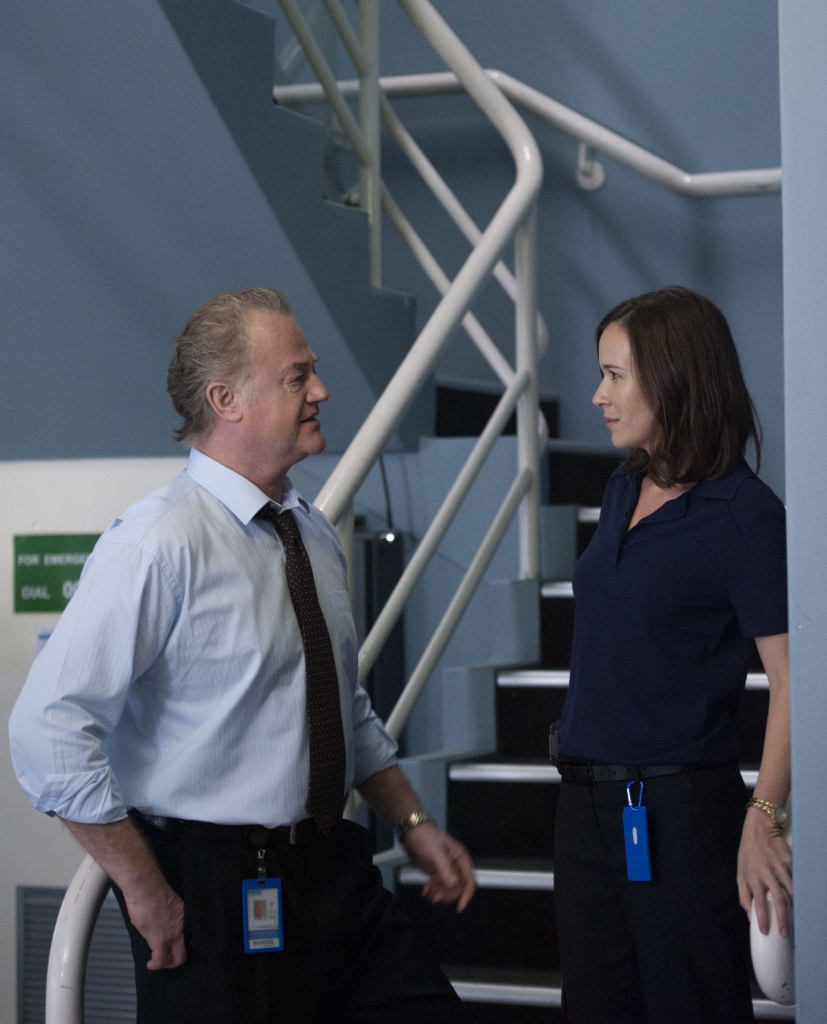
The busyness of the script perhaps aims to replicate the relentlessness of the job. We’re made privy to the hours spent on tired feet, the meals skipped, the furrowed brows, the takeaway coffees drunk on the move. We see the inability to spend time on the detail because new patients need triaging, and the constant pressure to clear beds. We hear the ticking clock that runs against the question, ‘What have we missed?’ As she is often seen flustered, overheating, taking desperate sips of water when she can, Frankie’s frustration at the lack of time and resources resonates. The pressure of staying well while giving her best to her job, of looking after herself to be able to look after others, is a constant push and pull, impacting her ability to provide empathetic care.
The extent of empathy
As patients, we want doctors to see into our world – to see the frustration in the everyday things we’re forced to endure by our ill health: the restless nights, the diminished social lives, the numbness from the meds. We want them to understand that, when you can’t be yourself, your frustration has to come out somehow, whether that means not doing your exercises, or drinking too much, or not taking medications while with friends – as we see in long-term renal patient Kelly (Jelena Milinkovic), who just wants to be a normal teenager but ends up back in hospital severely dehydrated and at risk of putting herself on regular dialysis. When Frankie stops to hold a patient’s hand or spend a few extra minutes with a family member – as she does for patient Zoe Mendosa (Melissa Bonne) and her husband and son – her patients feel less like they’re being lectured to, and more like they’re being cared for.
Pulse may look like just another medical drama on first impression, but it takes us to places that series that have come before haven’t. It shows us the lives of both patients and doctors. It shows us what a hospital really looks like and how it really functions. Pulse is about those who survive and those who are left behind, and the little hidden moments that often mean the most.
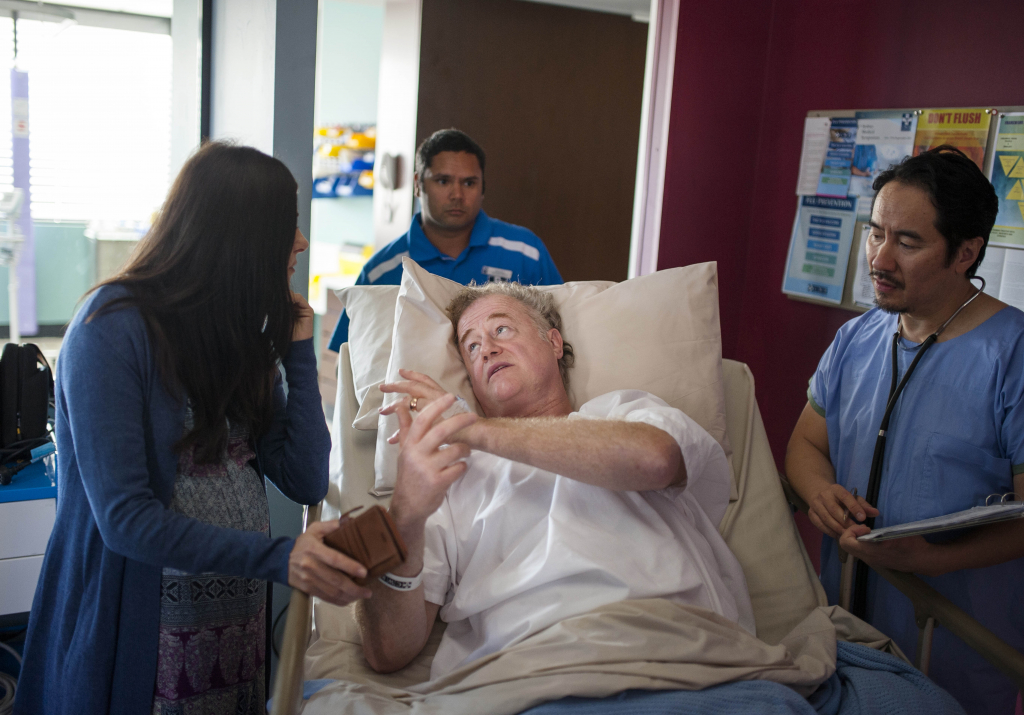
As the series reaches its conclusion, Berger – forced to take indefinite leave in order to have surgery to save his life – donates a kidney to Kelly. Just as the kidney is removed, complications from his own illness lead to his death. The hospital, its staff, its patients and, of course, Frankie are devastated. When Kelly wakes and asks after Berger, Frankie replies, ‘He’s done well’ – putting her at ease and allowing her to recover from surgery.
But Pulse isn’t about loss; it’s about renewal – the second chances, the friendships and bonds that come from adversity, asking for help and taking it when it’s given. It’s about the legacy of illness, and the scars that inform empathy. We don’t always see what’s going on behind the scenes of a hospital, but this series proves that that doesn’t mean it’s not worthy of our attention, or our thanks.
http://www.abc.net.au/tv/programs/pulse/
Endnotes
| 1 | Leslie Jamison, ‘The Empathy Exams’, The Believer, February 2014, <https://www.believermag.com/issues/201402/?read=article_jamison>, accessed 19 October 2017, emphasis in original. |
|---|---|
| 2 | ‘Pulse Extras – Series 1: Real Casting’, ABC iview, October 2017, <http://iview.abc.net.au/programs/pulse-extras/DM1629H002S00>, accessed 19 October 2017. |
| 3 | Denise Eriksen, ‘Pulse: ABC’s New Series Is the Aussie Grey’s Anatomy’, The New Daily, 19 July 2017, <http://thenewdaily.com.au/entertainment/tv/2017/07/19/pulse-tv-show-abc/>, accessed 19 October 2017. |
